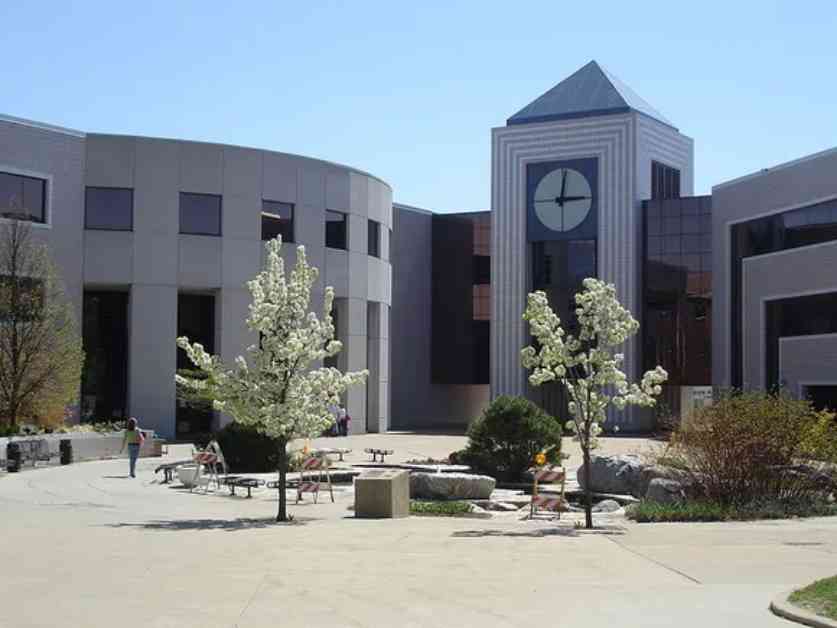Potential Faculty Strikes Looming at Two Michigan Universities
Two Michigan institutions — Oakland University and Western Michigan University — are facing the possibility of faculty strikes as negotiations over salaries, workloads, and other issues continue to drag on. The looming strikes come amidst a backdrop of growing labor action across professions in the U.S. and as colleges grapple with cost-cutting measures, budget revisions, and efforts to enhance academic productivity.
Oakland University Faculty Negotiations:
At Oakland University, the faculty contract covering 800 members is set to expire, leading to tense negotiations between the administration and the American Association of University Professors (AAUP) chapter at the institution. A recent bargaining session held on September 1 with the university’s administration concluded without a contract agreement. Subsequently, negotiating teams are scheduled to meet with a mediator in an attempt to reach a resolution. If no agreement is reached, the union officials have indicated that they will call for a work stoppage.
The Oakland AAUP chapter expressed dissatisfaction with the university’s handling of negotiations, citing the use of “unrealistically conservative budget projections” as an excuse for offering minimal and insufficient salary increases. The faculty members have been vocal about their concerns, particularly regarding workload policies and economic compensation. The university, on the other hand, asserts that it values its faculty members and respects their contributions.
During previous bargaining sessions, both parties were able to reach agreements on several smaller items, although the most contentious issue revolved around the university’s attempt to implement a universal workload policy. The union strongly opposed this policy, arguing that it would undermine the principle of shared governance and advocated for workload determinations to be made at the departmental level.
As negotiations continue, the university spokesperson stated that economic compensation remains the only unresolved issue. With the contract expiration looming, a vote to authorize a strike is currently underway, with expectations that the majority will be in favor of the strike authorization.
Western Michigan University Faculty Discontent:
Meanwhile, at Western Michigan University, faculty members are also expressing discontent over prolonged compensation and budget negotiations. The talks have surpassed the deadline set by the WMU AAUP, prompting the union to call for volunteers to serve on its strike preparation work group. Faculty members at WMU are particularly concerned about what they perceive as disingenuous budget posturing in negotiations, affecting issues such as salaries and healthcare benefits.
The union at WMU has highlighted instances of under-resourcing, which they believe adversely impact faculty members’ take-home pay and student experiences. They have cited challenges such as inadequate supplies, limited travel funds, and insufficient work tools as contributing factors to their frustration. Despite these challenges, the union remains resolute in their commitment to fighting for fair compensation and improved working conditions.
Amidst a backdrop of growing labor unrest in various industries, recent years have seen an increase in work stoppages and strikes. The Economic Policy Institute’s analysis of Bureau of Labor Statistics data has shown a spike in labor actions, with examples such as the University of Michigan experiencing a prolonged strike by graduate student workers in 2023. Similarly, facilities workers at Cornell University recently concluded a strike after failed negotiations, underscoring the challenges faced by workers across the academic landscape.
The Impact of Faculty Strikes:
Faculty strikes can have far-reaching implications for universities, affecting not only the academic continuity but also the overall reputation and standing of the institutions. Students may face disruptions in their education, as classes are canceled or rescheduled, potentially delaying graduation timelines. Additionally, faculty members themselves may experience financial strain and uncertainty during strike periods, further exacerbating tensions between the administration and the union.
The broader implications of faculty strikes extend beyond the immediate concerns of the negotiating parties. The public perception of universities as institutions of higher learning and research can be tarnished by prolonged labor disputes, potentially leading to decreased enrollment numbers and diminished academic prestige. As universities navigate the complexities of budget constraints and resource allocation, finding common ground with faculty members becomes crucial in maintaining a harmonious and productive academic environment.
Moving Forward:
As negotiations continue at Oakland University and Western Michigan University, the stakes remain high for both faculty members and university administrations. The outcome of these negotiations will not only impact the immediate working conditions of faculty members but also set a precedent for future labor relations within the institutions. Finding a balance between economic considerations and academic priorities is essential in ensuring a sustainable and equitable environment for all stakeholders involved.
In conclusion, the potential faculty strikes at Oakland University and Western Michigan University underscore the challenges faced by higher education institutions in balancing financial constraints with faculty demands. As negotiations intensify and deadlines loom, the need for constructive dialogue and mutual understanding becomes paramount in resolving the underlying issues and fostering a collaborative approach towards sustainable solutions. Only through meaningful engagement and compromise can universities navigate the complexities of labor relations and uphold their commitment to academic excellence and student success.


